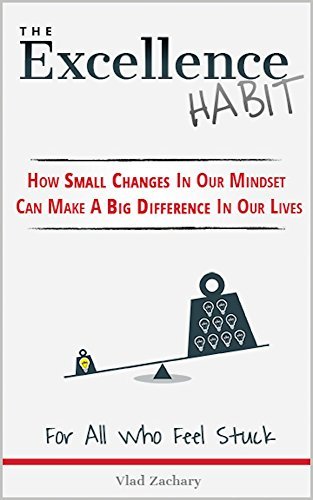
The Coaching Habit: Say Less, Ask More & Change the Way You Lead Forever
Book Description
Unlock the secret to transformative leadership with "The Coaching Habit." This powerful guide reveals the art of asking the right questions, shifting conversations into moments of profound insight and growth. Embrace a world where coaching becomes second nature, igniting curiosity and fostering a culture of empowerment. With bite-sized strategies, it challenges the mundane routines of leadership and propels you into a future where effective communication reigns supreme. Are you ready to say less and lead more?
Quick Book Summary
"The Coaching Habit" by Michael Bungay Stanier is a transformative guide for leaders aiming to revolutionize their management style by coaching more effectively. Through emphasizing the power of carefully crafted questions, the book arms readers with practical tools to facilitate meaningful conversations that foster growth, autonomy, and insight. The central thesis is that successful leaders do less telling and more asking, unlocking potential within their teams. By integrating seven essential questions into daily dialogue, leaders can break free from the trap of providing solutions and instead cultivate a workplace culture anchored in empowerment and active listening. The book combines neuroscience-backed strategies, actionable habits, and bite-sized wisdom to help leaders create lasting change in how they engage, develop, and support others.
Summary of Key Ideas
Table of Contents
The Transformative Power of Questions
Michael Bungay Stanier's "The Coaching Habit" flips the traditional leadership approach on its head by asserting that great leaders coach more by saying less and asking more. At the heart of this method is the belief that true change and personal growth happen when managers shift from providing direction to igniting curiosity through insightful questions. The book's message urges readers to resist their innate urge to give instant advice, which often disempowers others and limits learning opportunities.
Breaking the Advice-Giving Habit
Central to Stanier's approach are seven penetrating questions, each designed to uncover genuine needs, foster deeper reflection, and move conversations beyond surface-level exchanges. By repeatedly asking questions like, "What's on your mind?" or "What was most useful for you?", leaders facilitate dialogue that encourages ownership and constructive problem-solving, both essential for team development.
Building Sustainable Coaching Habits
A core theme is the powerful habit loop: cue, routine, and reward. Stanier challenges leaders to break the automatic habit of advice-giving by practicing self-restraint and adopting questioning as a new reflex. Through repetition, managers can transform coaching from a sporadic activity into a habitual leadership practice, ensuring personal growth and sustainable organizational impact.
Empowering Others Through Curiosity
The book also recognizes the psychological barriers to adopting a coaching style. Many struggle to let go of the expert role or fear uncomfortable silence. Stanier addresses these challenges with practical scripts and real-world examples, illustrating how curiosity and active listening are key to empowering others and strengthening relationships.
Embedding Coaching into Everyday Leadership
Ultimately, "The Coaching Habit" advocates embedding coaching into everyday leadership, making it an ongoing, effortless part of work culture. This shift not only enhances productivity and engagement but leads to teams that are more independent, resourceful, and motivated. The book's actionable framework and emphasis on curiosity equip leaders to create lasting, positive change in themselves and their organizations.
Download This Summary
Get a free PDF of this summary instantly — no email required.





